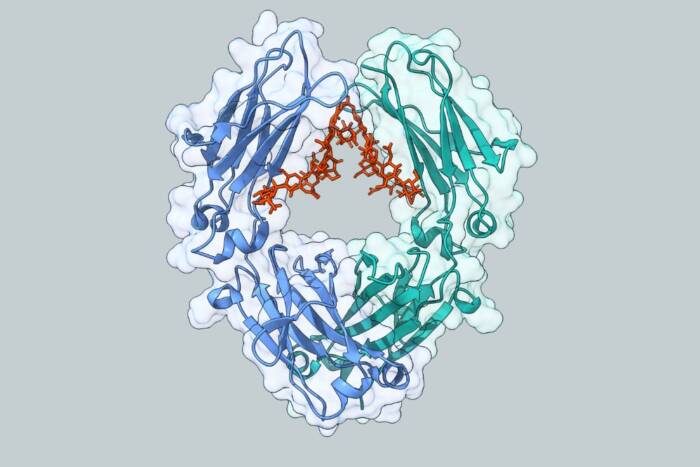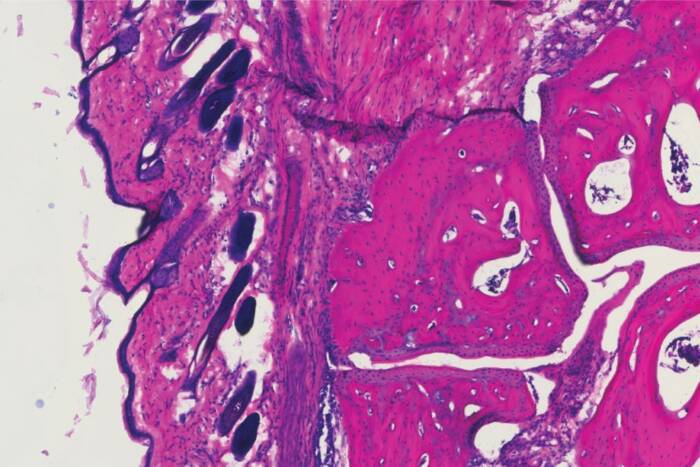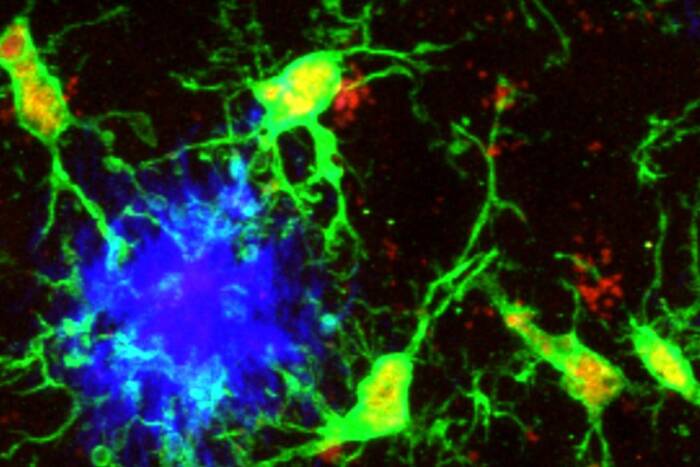Omar Ahmad
 (opens in new window)D.C.S., Marianopolis College; M.D., C.M., McGill University
(opens in new window)D.C.S., Marianopolis College; M.D., C.M., McGill University
Noises off: Two (Pairs of) Views of the Active Hair Bundle
presented by Sidney Strickland (on behalf of A. James Hudspeth and Bruce W. Knight)
All the students at Rockefeller University are exceptional, but some are exceptionally exceptional. Omar Ahmad is one of these.
Omar’s family originates from Bangladesh. He arrived at Rockefeller after concluding his undergraduate education and medical degree at McGill University in Montreal. In the course of his medical training, he had conducted some research on waves of excitation in the heart that set him on his subsequent intellectual course.
As you know, the whole idea of science is to get at fundamental similarities between seemingly disparate phenomena. It turns out that there are very general ways of thinking about all sorts of things that exhibit periodic behavior: ice ages, beating hearts, chemical reactions, nerve signals and so on. This mathematical discipline is called dynamical systems analysis. Omar became interested in a newly discovered phenomenon in this sphere, the amplification of sound by the ears.
Most of us think that what an ear does is pretty straightforward: You put sound in a hole on one side, and electrical signals come out a hole on the other side and tell the brain what’s been heard. It turns out that much more is going on in there: An ear doesn’t just passively receive sound, it actively amplifies its inputs. Our hearing is so sensitive because every faint sound is augmented a hundredfold. In fact, the amplification is so strong that human ears in an ultraquiet environment can actually emit sound: They work so hard that, like a public-address system whose amplification is turned up too far, they actually begin to screech or howl. When the amplifier wears out, which it tends to do with age and as a result of exposure to loud sounds, we become progressively hard of hearing.
In his thesis work, Omar used his experience with so-called dynamical systems analysis by examining a mathematical model for the way in which the ear carries out amplification. In particular, he did a remarkable job of simplifying an extremely complex morass of equations and ferreting out the essential features of the process. His adviser Bruce Knight, a widely experienced mathematical physicist who unfortunately wasn’t able to be here today, said that Omar’s work was one of the most insightful and sophisticated pieces of mathematics that he had ever seen in a doctoral thesis.
Above and beyond his scientific quality, Omar has been an outstanding contributor to the Rockefeller community. In particular, he has for several years organized the local chapter of Student Pugwash U.S.A., an organization that augments scientific education with lectures on subjects that impact our society, including international health, armaments, the global food supply and so on. This activity is consonant with Omar’s acute social consciousness; he is highly aware of contemporary political issues worldwide, and has a strong sense of social justice.
It’s also appropriate to say something about dealing with Omar. On the one hand, he is totally frank, utterly without guile, a prince among men. On the other hand, he is gifted with a rare degree of self-assurance that makes even members of our staid faculty want to kill him. Many a person on our campus acts as if he were brighter than everybody else; the syndrome is common enough that it by-and-large goes unremarked. The same attitude in Omar is troublesome only because he is brighter than everybody else. As part of the intimate tutorial process that is part of a Rockefeller education, a succession of faculty advisers have urged him to just shut up. I’m pleased to say that, in the course of time, Omar has picked up on the hint.
All told, Omar is an individual with a rare mathematical talent matched by exceptional dedication to humanity. Where he will go with this combination remains to be seen. He could succeed in conventional research, but might equally find fulfillment in areas of scientific policy or world health. In any event, he is certain to leave a mark through his talent and his altruism.


